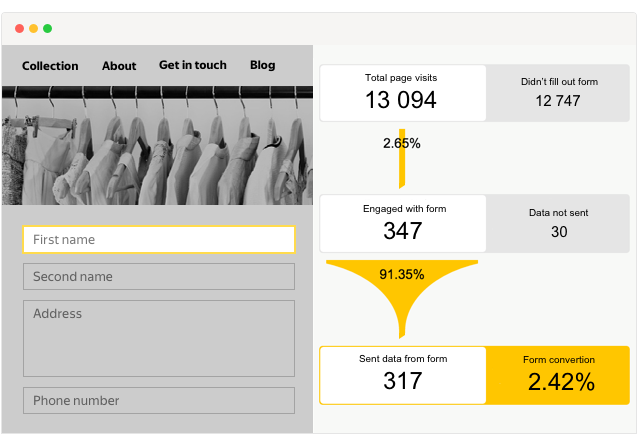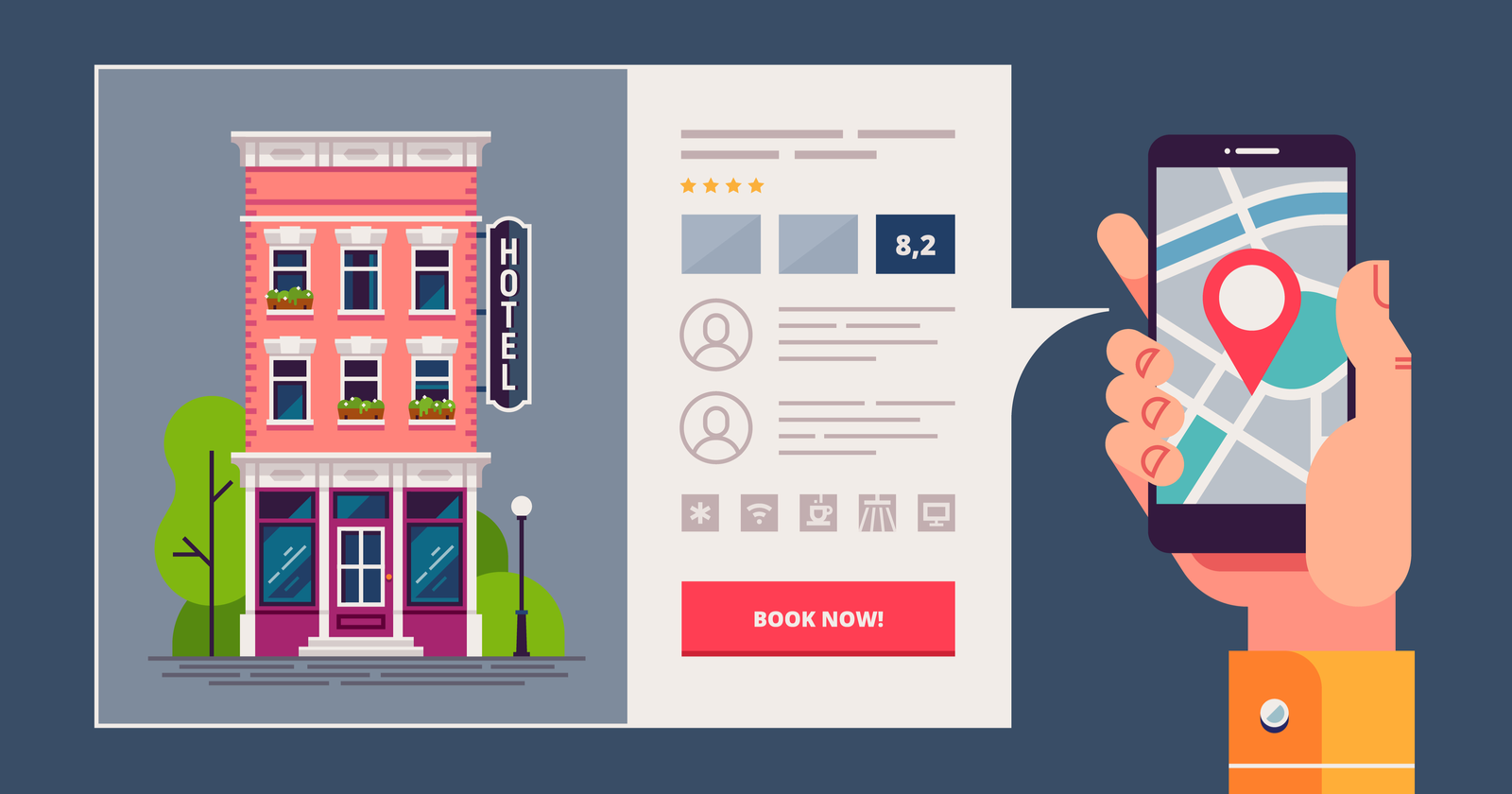The hotel niche has been one of the most competitive niches for some time now, with individual hotels and hotel chains competing against OTA (online travel aggregators) and price comparison booking sites.
Google has since increased its own assets in the marketplace, with a number of changes to how it presents hotels within search over the past year:
- Google Adds Hotel Bookings to Search Results
- Google Local Search Grades Hotels Based on Location
- Google Redesigns the Hotel Search Experience on Desktop
As well as new search features and special content result blocks, such as Google Hotels.
A lot of hotels are themselves listed on the comparison sites, as a necessary evil due to the amount of traffic and bookings these websites generate, but this comes at a considerable cost.
I know one bed and breakfast in the English seaside town of Whitby paid more than £8,000 in fees for bookings taken through travel comparison websites, which when you’re in a price-competitive market as it is can really put the squeeze on your margins.
It’s also relevant to say that there are differences between leisure and business travelers, and not all journeys from research to booking are linear, however search engines (such as Google) still play a big role in this journey.
 Screenshot from The 2014 Traveler’s Road to Decision Report by Google
Screenshot from The 2014 Traveler’s Road to Decision Report by GoogleBecause of this, attracting users and taking bookings directly is almost invaluable in a hypercompetitive market place.
However, it isn’t a lost cause. There are a lot of local SEO tactics and strategies that hotels can use to:
- Increase prominence within search results at various stages of the user cycle.
- Increase their traffic.
- Ultimately convert the traffic into bookings.
Firstly, let us look at how you can improve your rankings and traffic for relevant search phrases.
Optimize Your Website’s Content & Structure
Start with Keyword Research
Naturally, your hotel’s website may rank organically for a number of terms through location and naturally creating content, but by knowing exactly what your target audience is searching for can help take your website to the next level in terms of generating traffic and bookings.
Create Better Local Content
Once you’ve done your keyword research, it’s important that you create local content to not only promote your rooms and hotel services, but also non-commercial supporting content to increase the relevancy of your hotel website as both a hotel and its association with the geographical area.
How often should supporting content be produced?
Honestly, it doesn’t matter, as long as you’re strategy and implementation is consistent.
There are a lot of differing opinions on this. Some people believe content should be produced monthly, weekly, or even more frequently.
Whatever you choose, consistency is key.
Optimize Your Title Tags & Meta Descriptions
Unless your hotel is a well-known brand that invests in omni-channel marketing campaigns, it’s unlikely that many people are searching for your hotel’s brand.
From experience and testing, there is a strong correlation that title tags still carry significant weighting in determining how highly Google ranks your content. Because of this, it’s important to ask the question, does my brand matter?
Title tags are limited by pixel width (easier to measure in terms of characters) and as a result, your brand/hotel name can take up valuable real-estate that could be better used for targeted keywords – and then appending the end of the title tag with the brand name, if there is space.
The meta description, on the other hand, behaves differently than title tags. They don’t directly influence rankings, but meta descriptions can impact click-throughs.
Make the Most of Google My Business
From your keyword research, you will already know that people search for some form of hotel search phrase and modifiers, plus your location (e.g., [cheap hotels in whitby]).
With this, the user is sending a clear localized intent to Google that they want results relevant to a specific geographic location, and as part of this, it’s likely Google will use the Map Pack results feature within the results listing.
An optimized Google My Business listing gives you a greater chance of appearing in that Map Pack result, as well as being a normal blue link listing on the results page.
Through Google My Business you can:
- List your hotel’s name, address, and phone number (a.k.a., NAP).
- Ensure your Google Maps marker is in the correct location so users can find your hotel.
- Display unique photos of the hotel, rooms, and facilities.
- Display guest reviews and also respond to guest reviews (both positive and negative).
- Provide any additional details relevant to travelers looking for information, such as Wi-Fi, disabled access, etc.
If you run multiple hotels at different locations, you should have a verified Google My Business listing for each one – maintained through a single account.
Optimize Your User Journey & Booking Process
Now that you’re competing for SERP real estate against Google’s own assets and bringing more relevant and qualified traffic to your website, it’s time to optimize the user journey and book process on your website.
Below are a few ways you can optimize the booking/inquiry process for users in order to maximize your website’s potential.
Make CTAs Obvious
This should go without saying, but I still see far too many websites where the contact link is in the footer and there are no obvious CTAs (calls to action) on key landing pages.
Here are 20 ways to write a killer call to action.
Streamline Contact Forms & Payment Gateways
Websites should only collect information that is absolutely necessary through online forms.
Forms with fewer fields can have a 65 percent higher conversion rate on mobile devices, according to a study by Koddi.
It’s also important to keep the booking process and forms to as fewer pages and clicks as possible. The same study also revealed that users are 14 percent more likely to complete the booking if there are fewer than 4.6 clicks between them and satisfaction.
It’s also important to monitor the performance of your forms, and you can do this for free through Yandex Metrica.
 Yandex Metrica form analysis
Yandex Metrica form analysisYandex Metrica is an excellent tool to run alongside your normal Google Analytics install, and it is GDPR-compliant. Functions such as form analysis, heatmaps, and user session recording are standard features within Metrica.
Armed with this data, you can quickly see where people are abandoning your forms, so you can test whether the field itself is the issue, or if the labeling on the field isn’t as clear as it should be.
Make Sure Pages Load Fast
Your pages need to load fast. There are countless studies and research pieces that demonstrate a strong correlation between pages loading fast and user abandonment rates.
Some of the headline statistics from Google studies include the fact that 53 percent of mobile users abandon sites that take over 3 seconds to load.
A common culprit of slow load speeds are images, either being in an underoptimized format, or the file sizes not being compressed.
Opportunities with New Technologies
Moving away from traditional search, voice search and artificial intelligence offer new opportunities in both customer acquisition and customer acquisition.
A good example of this is the Clarion Hotel in Stockholm. Clarion is one of the first hotels to utilize an AI-enabled chatbot “butler” as an in-room assistant, through the Amazon Echo device.
The AI assistant is also equipped with a number of core functions such as the ability for hotel guests to order cabs, order room service, access online information, as well as a number of other hotel and concierge related actions.
By creating a number of different touchpoints for users away from traditional search, you can combat some of Google’s new features and own assets and attract customers direct, outside of OTAs.
Voice search and AI offers a number of opportunities, as well as integration with applications, as demonstrated by the Hilton Honors App. A lot of people still think this sort of technology is years away, but it is progressing in the travel sector a lot faster than people may think.
Another example of technology advancing within this sector is the Henn na Hotel in Tokyo, which is one of the first hotels in the world to use robots and minimal human staff. While it is still a bit gimmicky, and you have robotic velociraptors attending the reception desk, it is a big step in the direction of more autonomous robots and AI performing basic customer service jobs.
More Resources:
- Local SEO: The Definitive Guide to Improve Your Local Search Rankings
- 9 Types of Content That Will Help Your Local SEO
- How to Use Local Keywords to Rank Higher on Google
Image Credits
All screenshots taken by author, February 2019




